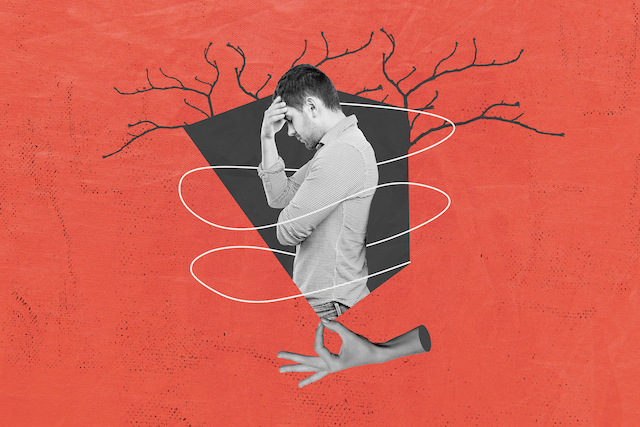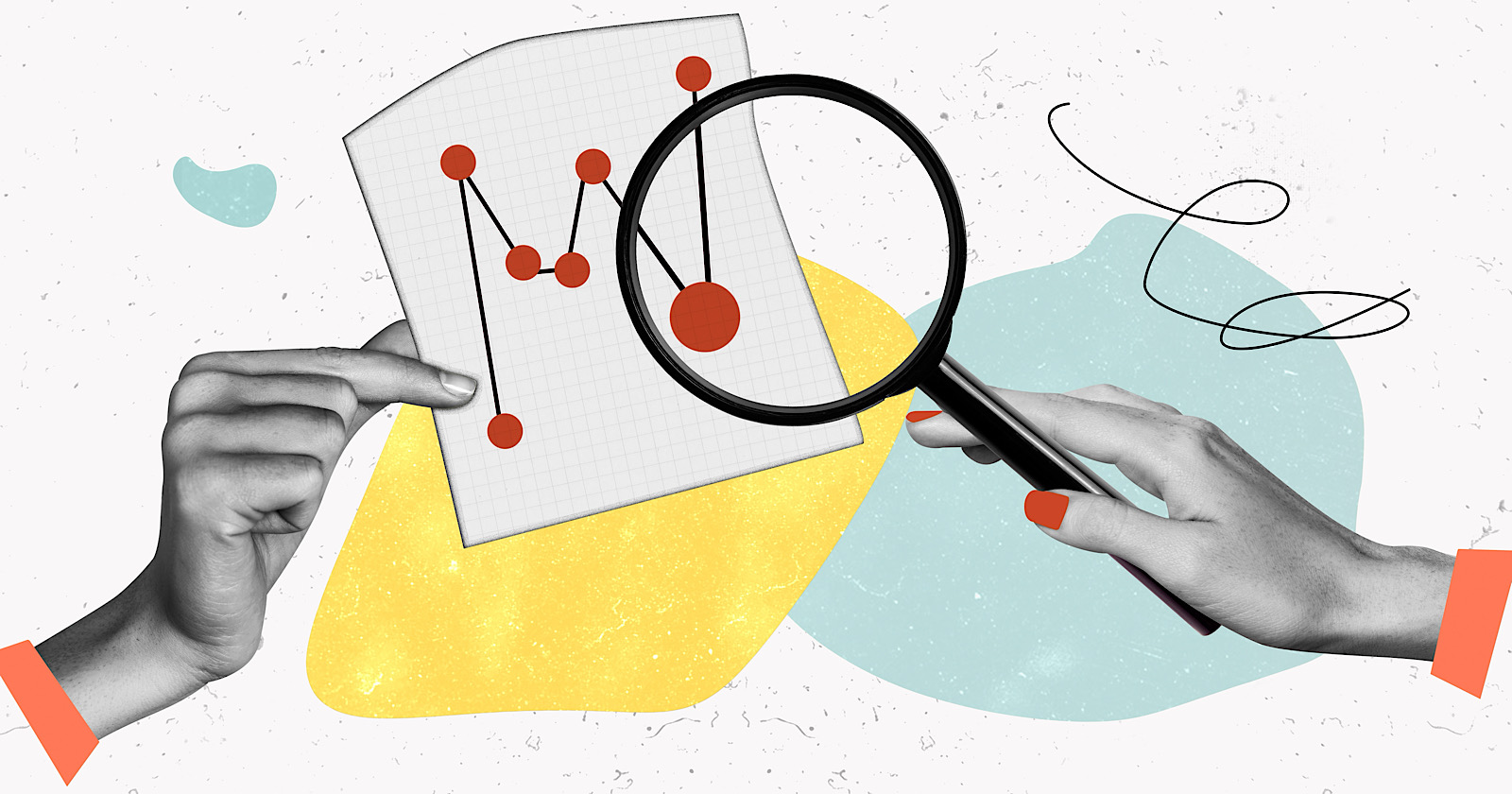How Your Worst Days Can Shape Your Best Self
“It is often those moments you feel least connected that you are actually making your greatest progress. The chaos around you is an invitation to pause, reflect, and grow. You are more than equipped to deal with this. If...


“It is often those moments you feel least connected that you are actually making your greatest progress. The chaos around you is an invitation to pause, reflect, and grow. You are more than equipped to deal with this. If you weren’t, you wouldn’t be here.” ~Benjamin P Hardy
It’s 1 a.m., and the silence is broken by a cough that can only be described as sounding like someone who has smoked two packs daily for the last thirty years. There’s no way to predict when I’ll be woken again, but if the past week is any indication, this won’t be the last.
Unbeknownst to me, I’ve been dropped into the notoriously rigorous training program known as “Hell Week” that Navy SEAL candidates must endure. It’s a gruelling, continuous training exercise lasting several days with little to no sleep, intense physical challenges, and mental stress. Hell Week aims to test candidates’ physical and mental resilience and their ability to work effectively as a team under extreme conditions.
Here’s the problem: My hell is a twenty-month-old with a nasty cough that she can’t shake. She’s obviously not torturing us on purpose, but it doesn’t make the experience any less exhausting.
When I finally fall back asleep and am once again awakened by a foghorn for the sixth night in a row, the tears start welling up in my eyes, as I have no idea how the hell I’m going to make it through another day of calls and projects that are relying on me.
Bipolar and sleep deprivation go together as well as a clown juggling chainsaws in a hurricane—a disaster waiting to happen, with a side of chaos and potential accidental amputations.
So, if I’m going to be perfectly honest, and to borrow another military term, the team is experiencing a clusterf*ckunder these extreme conditions.
How else would you describe the frustration and disorder that arises when things do not go according to plan?
Our team is hanging on by a thread. The fights between my wife and I are wearing us down, the outbursts of anger are cringe-worthy, and the feeling that this will never end is causing enough friction to leave our skin raw.
These are the moments when I catch myself being a victim of my life.
Then I realize my expectations are out of whack. Things won’t always go smoothly, and sometimes I need to accept that I can’t do everything I’d like to accomplish, or do anything as well as I can when I’m at my best.
These are not the moments to thrive.
These are the moments to survive.
It’s a reminder that life rarely goes according to plan.
And that’s the whole point of Hell Week.
Anyone can crush it on a good day, but how do you handle the inevitable hell you will face as a parent, someone who gets crippled by their mental health, or experiencing any number of painful challenges we all face?
That question has improved my mental health, business success, and life quality more than anything else I’ve encountered in the last six years.
Why?
Because it changed my approach.
Your choices on your toughest days shape your path more than those made on your brightest.
When I struggled, I found that having an all-or-nothing approach rarely allowed me to progress on the essential things. Instead, it often felt like I was starting from scratch again. I would go off the deep end and find myself drowning in a negative thinking pattern, saying, “Of course I’m back here! Shit like this always happens when I’m making progress.”
But as author James Clear said, “You do not rise to the level of your goals. You fall to the level of your systems.”
It taught me the importance of establishing a solid foundation and that sticking to a routine can provide stability and a sense of control (regardless of what’s happening around me).
I am nothing without hydration, elevation, meditation, and contemplation.
This can feel high-level when you’re starting out. Don’t overthink the “perfect” way to implement these power-ups.
I’ll crush another coffee 👉 I’ll drink a liter of water. I’ll catch up on emails 👉 I’m taking the dog out for a walk and getting some sun. I’ll get ahead on a few of my projects 👉 I’ll sit down and throw on a twenty-minute guided meditation. I’ll watch a few lessons for a marketing course 👉 I’ll sit on the front porch and read something light and fun.These small trades can make a big difference to your physical and mental health when you’re struggling.
It’s easy to feel overwhelmed in the world of self-growth and personal development. Especially when you’re shamed for not having a clear answer to questions like, “Wait, you don’t have a three-hour morning routine carved out to put yourself in a peak state of abundance?”
I’m going to categorize that as a “nice to have.”
It’s similar to my intention of cooking gourmet meals for my daughter every night, yet I often resort to buttered noodles and broccoli because they’re a crowd-pleaser.
There’s substance, and I’m not adding to an already stressed-out day.
Meaning she gets a better dad who is enjoyable to be around.
Winning the day comes back to being far more intentional about what you can stick to on your day from hell than what you can accomplish on your dream day of sunshine, lollipops, and prepping Michelin star meals.
In the midst of our personal Hell Weeks, it’s the small, intentional actions that become our lifeline. It’s not about mastering every challenge but about grounding ourselves in the routines and habits that offer solace and stability.
So, when the nights seem endless and the challenges insurmountable, remember: your power lies in your tiny, consistent choices. Harness them and watch as they transform your toughest days into stepping stones toward a brighter tomorrow.
![]()
About Chris Wilson
Join Chris Wilson in 'Simplify Sundays,' a newsletter journey blending productivity insights, minimalism, and personal growth. Overcoming depression and bipolar disorder, Chris shares profound lessons for a balanced, fulfilling life. Discover the power of simplicity and mindfulness to transform challenges into growth opportunities. Embrace a life of less stress, more joy, and meaningful living. [Click here to access Chris's Free Course] on mindful simplicity, and start your journey toward a happier, more productive life.
See a typo or inaccuracy? Please contact us so we can fix it!

 Koichiko
Koichiko 





























